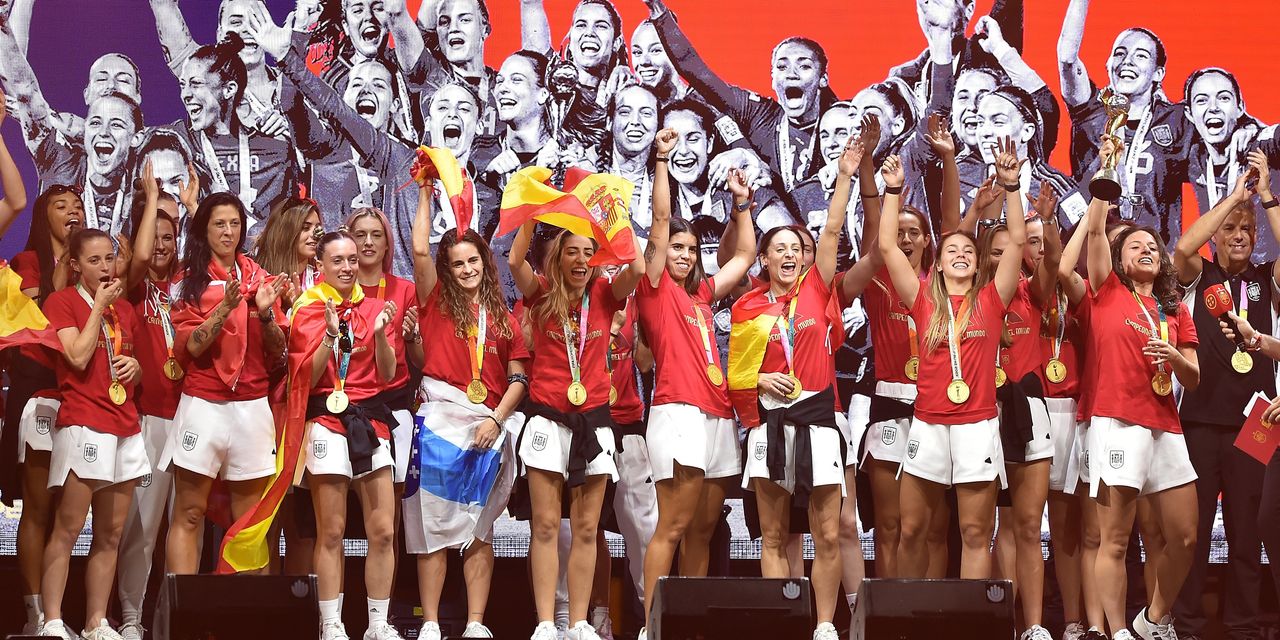Madrid and all of Spain overflowed with joy on Monday as residents greeted their returning Women’s World Cup champions, flooding streets, honking horns, screaming and waving and chanting as the victorious soccer squad rolled through the capital city on a bus marked “Campiones.”
On the morning after, though, outrage over a nonconsensual kiss continued to grab headlines.
Spain’s acting prime minister, Pedro Sánchez, condemned the president of the Spanish Football Federation, Luis Rubiales, who, as seen in videos of the trophy ceremony on Sunday, grabbed player Jenni Hermoso’s head with both hands and kissed her on the mouth.
Sánchez labeled the kiss “unacceptable” on Tuesday, saying the apology by Rubialies “wasn’t sufficient, wasn’t adequate,” adding that the Spanish football president is “chosen or removed by its members. Mr Rubiales must take further steps to clarify clearly unacceptable behavior.” Sánchez added that the country has a long way to go when it comes to gender equality and respect.
Also on Tuesday, Miguel Ángel Galán, president of the National Football Coaches Center, filed a complaint with the National Sports Council, describing the kiss as an “intolerable sexist act” and asked the country’s Sports Administrative Court to start an investigation.
Hermoso reportedly said of the kiss on social media that she “didn’t like it” but later released a statement to news agency EFE in which she said that she had had a good relationship with the federation president and that his behavior had been a natural gesture of appreciation and affection.
Rubiales’s initial apology to a Spanish radio station wasn’t viewed favorably: “It was a kiss between two friends celebrating something,” he said, going on criticize the “idiots and stupid people” who saw it differently. As outrage built, the Spanish Football Association sent out a video apology in which Rubiales said: “We saw it as something natural, normal and not in bad faith, but there are people who have been hurt by this, and I have to apologize.”
He acknowledged his action had “tarnished” the joy of the cup victory.
Rubiales also came in for criticism as a video circulated on Twitter, now called X, purported to show him grabbing his genitals in an emotional moment at the final. He was, at the time, positioned beside Spanish Queen Letizia.
The kissing controversy comes against a backdrop of a revolt, as 15 players last year called for a more professional environment and said they would abstain from playing on the national team, pitting them against coach Jorge Vilda and the Spanish Soccer Federation. Three of the players did return to play in the final.
Controversy and acrimony aside, the history-making players returned from Australia on Monday to a country embracing its new campeones much as it has its men’s side — a World Cup winner in 2010 and a three-time winner of the UEFA European Football Championship — in the past.
At the heart of the Madrid Río riverside park on Monday, some people had waited hours, including with young children, in near-100-degree temperatures when the team finally arrived after 11 p.m. Central European time. Near the bridge Puente del Rey, joyous onlookers danced and sang (and waited, generally patiently), spilling around the center stage and onto the grassy banks of the Manzanares, some standing on benches, trash cans or each other’s shoulders.
They greeted their champions with roars of approval well into the night, awakening memories of 13 years ago, when Spain’s men’s team defeated the Netherlands in extra time in a gripping final to the South Africa–hosted World Cup. The women’s victory made Spain the only country besides Germany to have seen both male and female entrants hoist World Cup trophies.
Read the full article here








